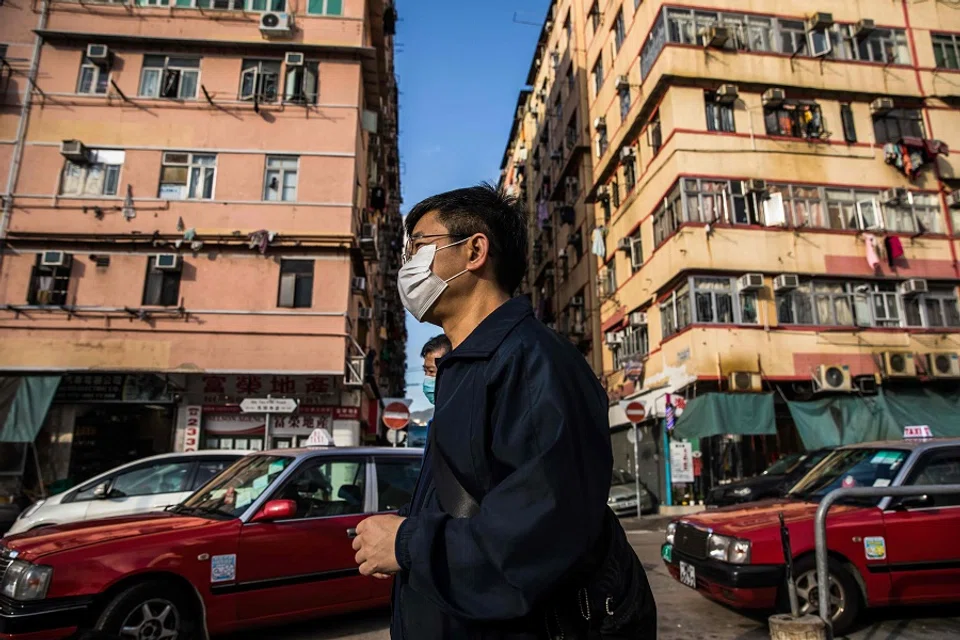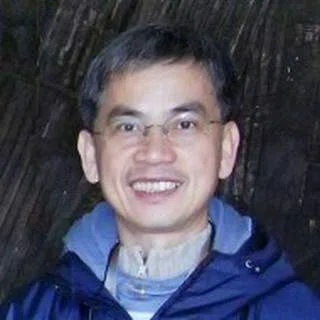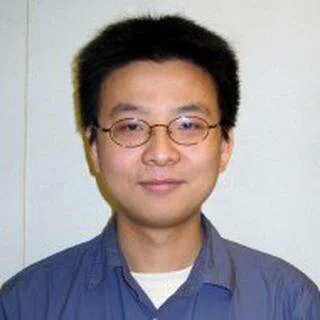Hong Kong and Covid-19: Resilience amid adversity
Norman Yik finds a silver lining in the Covid-19 chaos coursing through Hong Kong. A group of self-reliant individuals are showing that the fighting spirit that Hong Kong is known for is alive and well. And Tai Hing Shing charts the beginning of a busy week as Hong Kong civil servants return to office.

The Covid-19 outbreak has dealt another big blow to Hong Kong's economy. At the same time, Hong Kongers are increasingly anxious, with some panic buying and hoarding masks, toilet paper, and rice. Yet, amid such adversity, Hong Kongers are showing grit and self-reliance.
The Hong Kong DIY spirit
A group of self-proclaimed middle-class intellectuals were greatly unhappy about the government's handling of the outbreak, especially in its delays in border shutdown and inability in providing sufficient masks for the public. They worried for the safety of their families, and went from being helpless to extremely angry, and finally, being their own hero and finding their own masks.
Although Hong Kong's mask supply remains low, following the local business community's quick establishment of multiple mask production lines, Hong Kongers finally see a ray of hope.
One of them was an IT professional who had never dabbled in commerce before. From mid-January, he got in touch with his global network of friends. He personally contacted each one of them, getting to know the state of the supply of masks in their country. After a series of twists and turns, he was finally linked up with mask suppliers from Russia, East Europe, and even North Africa.
He said, "I didn't know doing business would be so difficult. Prices were unfixed, quality was varying, and the other party could flee even after they received your money. Even after the goods were shipped, they could stay stuck at one place because a lockdown was imposed. After suffering losses multiple times, I've finally gained some practical knowledge." This IT professional eventually bought over six million masks, and found the means to do good.

Former, but lesser-known Television Broadcasts Limited artiste Yoe Biu became a star during this outbreak, but not because of his acting career. He found his place doing business, as an agent of the IMC brand of 100ml water catalyst anti-virus and sanitising spray. Although these sprays sell for over HK$700 (S$125) a bottle, they were out of stock.
While the spray is not for medical treatment, it can be used on surfaces and has lasting antibacterial properties. Hong Kongers discovered that they could use the spray on their masks as it removes odours even after wearing them for an entire day. The ability to reuse masks is especially important to the Hong Kongers who are facing a severe shortage of masks.
It is also producing 200,000 "Made in Hong Kong" low-cost antibacterial masks on a daily basis, and distributing them for free to the grassroots.
Although Hong Kong's mask supply remains low, following the local business community's quick establishment of multiple mask production lines, Hong Kongers finally see a ray of hope. Even if the outbreak is quickly spreading internationally and there is a global panic buying of masks, Hong Kongers are feeling more assured than before.
For example, the New World Development Co. Ltd. has injected approximately HK$10 million into joint research and development with nanotechnology companies to use NanoDiamonds technology to enhance masks. It is also producing 200,000 "Made in Hong Kong" low-cost antibacterial masks on a daily basis, and distributing them for free to the grassroots.
All respiratory viral diseases reduced
There is another piece of good news amid the outbreak that has caused many sleepless nights. The four Covid-19 preventive measures implemented - wearing masks, washing hands, preventing the spread in toilets, insisting on long-distance interactions - have at the same time greatly reduced the number of infections in Hong Kong's winter influenza season, and shortened the peak period to 34 days. This is one-third of the 98.7 days on average over the past seven years.
Dr Ho Pak Leung, president of the Carol Yu Centre for Infection at The University of Hong Kong, pointed out that positive test results of all respiratory viruses have largely decreased, and in terms of statistics, Hong Kongers are doing better than the 2003 SARS pandemic.
Psychologists and traditional Chinese medicine practitioners have also contributed a lot amid this outbreak, constantly posting messages on digital media and social media platforms about how to be positive, and conducted sharing sessions on epidemic psychology, teaching Hong Kongers appropriate medical attitudes for prevention and treatment of the virus.
Lam Shui Fong, professor of educational psychology at The University of Hong Kong, said that the shortage in masks does not make her anxious. She makes her own alcoholic hand sprays in her free time to share with her friends in need. She added that anxiety often clouds our vision and emphasised the need to keep one's composure. In fact, just five minutes a day spent meditating would help people be in a good frame of mind to take good care of themselves and lend a helping hand to others.
Protests amid epidemic
Amid these encouraging examples of resilience amid adversity, the eight-month long Hong Kong protests that started last year are not over. After a mere pause of over a month during the outbreak, the "black-shirts" are in action again with their petrol bombs, to which the police retaliated by firing tear gas.

The "black-shirts" are loathsome, but so are the "yellow ribbons" hiding behind keyboards, and relentlessly posting obscure poems that imply "death to the entire family of corrupt policemen" on social media platforms. Even Hong Kong actress Stephy Tang was embroiled in a controversy over sensitive words like "煞景" (sha jing, the end of filming a scene), "棕地" (zong di, referring to flatland in the New Territories area, the area where her filming took place), and "五十天" (wushi tian, fifty days, referring to the 50th day of filming) that she posted on a photo where she was seen celebrating with champagne.
I only understood the controversy after some explanation: sha jing sounds incredibly similar to "杀警" (sha jing, kill the police), zong di refers to "(抗争者)兄弟" (kangzheng zhe xiongdi, the protesters, our brothers), and if you split the phrase wushi tian, you would get "五+一大" ("five" plus "one big", referring to the slogan "five demands, not one less").
Only a righteous heart is impenetrable to a multitude of deadly viruses.
Following the SAR's announcement of cash handouts of HK$10,000 to all permanent residents, the yellow ribbons responded online with "三万thx" ("30,000 thx"), sarcastically implying that instead of receiving HK$10,000 in cash, they would rather "all 30,000 Hong Kong policemen be infected with Covid-19", viciously cursing Hong Kong's 30,000-strong police force.
Perhaps this is the way in which the "black-shirts" and yellow ribbons demonstrate their "resilience". But I am convinced that the only way humankind can battle against a deadly virus is to stand united. Only a righteous heart is impenetrable to a multitude of deadly viruses.
Notes on Hong Kong
Financial Secretary Paul Chan: Hong Kong's economy will rebound
Secretary for Commerce and Economic Development Edward Yau: But not in the first quarter
Hong Kong's financial secretary Paul Chan posted on his official blog on 1 March that Hong Kong's economy is now in deep winter, but looking at Hong Kong since 1997, its economy had always shown sharp rebounds after overcoming economic low-tides, such as the Asian financial crisis in 1998, the SARS epidemic in 2003, as well as the global financial crisis in 2008.
He noted that while Hong Kong might not be able to replicate those measures that facilitated the swift economic recovery in 2003, it is now enjoying the enormous opportunities brought by the Guangdong-Hong Kong-Macao Greater Bay Area development, the Belt and Road initiative, as well as the huge and affluent mainland market.
He also wrote that many nearby Asian countries have been growing very fast in recent years, adding that ASEAN countries have already surpassed the EU and become Hong Kong's second largest trading partner, bringing enormous development opportunities for its financial services, innovation and technology, transport and logistics, and professional services sectors.
However, Secretary for Commerce and Economic Development Edward Yau thinks that it will not be easy for Hong Kong's depressed economy to improve in the first quarter.
Speaking on a local radio programme, Yau said tourists to Hong Kong have dwindled, which has affected many sectors. Coupled with the aftereffects of the earlier China-US trade war and the continued social violence, it will be difficult for the sliding economy to rebound in the first quarter of this year. He added that economists forecast that Hong Kong's growth in real terms this year will be between -1.5% and -0.5%.
Yau said the epidemic was a test of the government's capabilities, where it had to understand ground sentiment while not being guided by populism.
As for the resurgence of violence in Hong Kong over the weekend, Yau said social order was necessary for economic recovery, and that people had to think about whether to allow the violence to continue.
Civil servants back to office
With the gradual easing of the Covid-19 situation in Hong Kong and Macau, government officials in both Hong Kong and Macau were back in the office yesterday (2 March), ending over a month of working from home for civil servants.
Hong Kong's MTR system was significantly more crowded during peak hours, with passengers wearing masks as they stood shoulder to shoulder in train cabins.
Civil servants said several private companies have taken their cue from the government and allowed staff to go back to the office, but reduced frequencies on the MTR and bus system meant crowded cabins and high human flow on the MTR yesterday. Another concern was the increased possibility of cross-infection during peak hours and lunchtime.
However, many Hong Kongers welcomed civil servants going back to the office. At Revenue Tower in Wan Chai, a member of the public complained that he received tax documents from the government in January before Chinese New Year, but he could not act on them because of limited services at government agencies. He grumbled, "There is a deadline on my taxes, but they don't care. Bottom line is, their lives are precious."

Hong Kong's secretary for the Civil Service Joshua Law yesterday inspected the joint anti-infection efforts by the government at its headquarters, North Point, and Admiralty locations, and visited the Civil Service Training and Development Institute and the Official Languages Division to find out more about flexible work arrangements for civil servants.
Law said the agencies were running smoothly and there were no problems for the moment.
He stressed that controlling the epidemic remains the priority for the Hong Kong SAR government, but given the needs of society, the government has to gradually and progressively provide more public services, as the people would want.
After the epidemic broke out in Hong Kong in late January, the government announced special arrangements for civil servants to work from home instead of the office, except for emergency and essential services, to reduce the risk of community spread. Subsequently, Chief Executive Carrie Lam extended the period of working from home several times.
There were no new confirmed cases of Covid-19 in Hong Kong on 2 March, with a total of 100 confirmed and suspected cases as of the time of writing.
Queues seen at several government agencies in Macau
In Macau, which has had no new cases in 26 days, civil servants also went back to the office yesterday, with queues for services at many government agencies.
Bars, discos, health clubs, karaoke joints, and other entertainment spots also reopened yesterday, under official instructions against the epidemic, including: staff having to always wear masks and patrons wearing masks wherever possible; having half the original capacity of patrons to prevent overcrowding; refusing entry to those running a temperature or showing respiratory symptoms; and maintaining a distance of at least 1 metre between patrons.
Schools remain closed
On the other hand, schools in Hong Kong remain closed. Class suspensions, which started in January and were subsequently extended to March, have been later extended again till 20 April.
Schools were closed for 51 days during the SARS period in 2003, with about five days of extra lessons after.





![[Photos] Fact versus fiction: The portrayal of WWII anti-Japanese martyrs in Taiwan](https://cassette.sphdigital.com.sg/image/thinkchina/3494f8bd481870f7c65b881fd21a3fd733f573f23232376e39c532a2c7593cbc)

